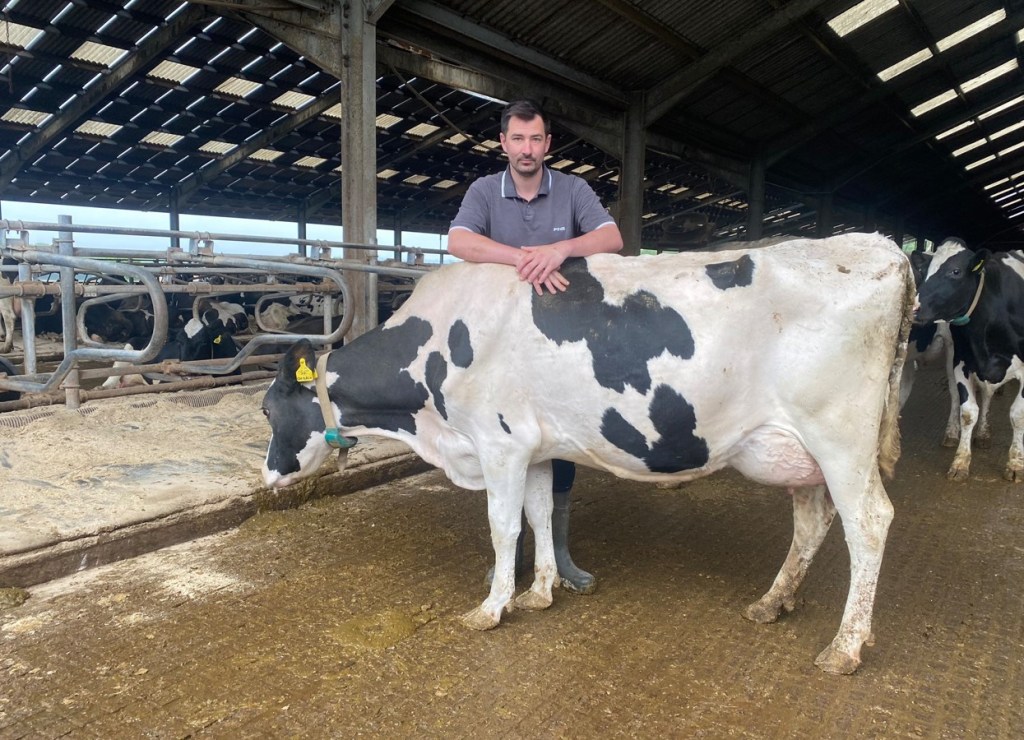Is it more beneficial to have a smaller Holstein?
Is it more beneficial to have a large Holstein or a small Holstein? This has been a debate amongst farmers for many years. Many farmers believe that larger animals have more to offer due to their bigger body size, which in turn would mean they eat more food and therefore produce more milk. But is that the right way of thinking?
In the past, a smaller cow may have been less desirable in some ways. However, data capture has proved that their decreased size enhances their efficiency, in turn making them more profitable and sustainable.
Research has found that smaller cows consume significantly less feed than their larger comparisons, due to their reduced size.
For a cow to produce and function in a healthy way, they need to consume at least 2% of their total bodyweight in feed, resulting in less feed required for a smaller cow and saving the farmer money overall.
Saving money on feed isn’t the only benefit when it comes to smaller Holsteins. You may be thinking: “What about milk?” Which would be every farmer’s concern. However, research has found that these smaller, more efficient cows, with the right genetics, can actually produce the same amount of milk as larger animals, and live a longer productive life.
What is Feed Advantage?
The Feed Advantage index calculates feed efficiency. It was designed to help you to pick the bulls that are most likely to pass on their impressive feed conversion traits to their offspring.
Ideally, you want a cow that eats less, but gives the same amount of production as one who eats a lot. Simultaneously, you don’t want the health of the animal, or its longevity, to be affected.
It has been scientifically proven by global data; including information from the UK, that some animals can convert their food better than others.
How is it Sustainable?
Smaller, more productive cows produce less methane, which can be harmful to the environment, over their lifetime. Most of the methane they produce is released from the cow when they are ruminating. A smaller cow, which eats less food, will therefore produce less methane.
Not only is it sustainable for the environment, having smaller Holsteins is also sustainable for you and your wallet.
With less feed to pay for, you could save yourself £500 per cow, per lifetime. Not only that; your smaller, more efficient cow will live a much longer productive life. This means you won’t have to rear as many replacements, which would have a negative impact on your carbon footprint.
Genus ABS is proud to own 59% of the top performing Feed Advantage bulls, as of the top 100 genomic availability list, December 2022.
If you’re interested in using our sires to improve your herd’s genetic progress, contact your local representative today, or visit our website.
North Wales / Cheshire / Staffordshire: Aaron Bousfield – tel:07967 783662 / mailto:[email protected]
Derbyshire / Shropshire / Leicestershire / Herefordshire / Lincolnshire: Richard Bostock – tel:07970503329 / mailto:[email protected]
Yorkshire / Lancashire: Colin Lucas – tel:07971 118993 / mailto:[email protected]
Gloucestershire / Oxfordshire / Buckinghamshire / Wiltshire: Andy King – tel:07971 119044 / mailto:[email protected]
South Wales: Ceidrych Davies – tel:07971 118614 / mailto:[email protected]
Devon, Cornwall & Somerset: Simon Hancock – tel:07971118911 / [email protected]
Scotland: David Guthrie – tel:07976 334 694 / [email protected]
For general enquiries, please contact [email protected] or call us on 01270 616681






